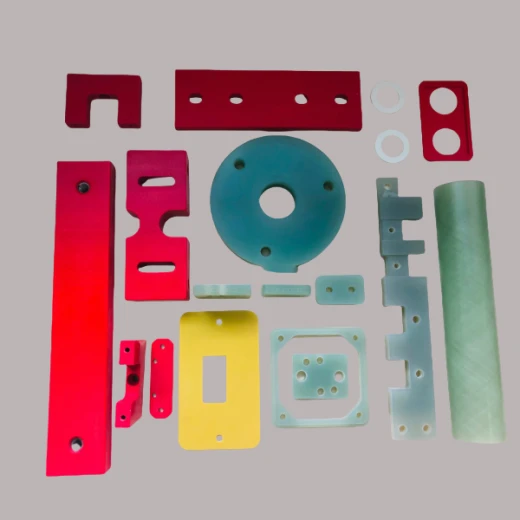Insulation sheets are multifunctional materials widely used across industries due to their excellent thermal, electrical, and acoustic insulation properties. With low thermal conductivity, high dielectric strength, and reliable sound absorption, they offer dependable solutions for energy efficiency, system safety, and noise control.

1. Thermal Insulation: Enhancing Energy Efficiency
● Building Temperature Management
Insulation sheets are integral in maintaining interior temperature stability within buildings. Their low thermal conductivity helps reduce heat loss in winter and heat gain in summer, significantly lowering energy consumption for heating and cooling. They are commonly applied in walls, roofs, and flooring to create effective thermal envelopes.
● Industrial Process Control
In manufacturing environments—such as chemical plants and food processing facilities—temperature consistency is vital. Insulation sheets are used on equipment like pipes, tanks, and reactors to maintain process temperatures, reduce heat loss, and enhance production efficiency.
● Refrigeration and Cold Storage
Used in refrigerators, freezers, and cold rooms, Insulation sheets help maintain low internal temperatures and reduce the load on cooling systems. Their excellent thermal resistance ensures temperature uniformity and energy conservation while preserving product integrity.
2. Electrical Insulation: Ensuring System Safety
● High-Voltage Equipment Protection
With high dielectric strength, Insulation sheets prevent current leakage and short circuits in power systems. They are critical components in transformers, switchgear, and electrical cabinets, protecting both equipment and personnel.
● EMI Shielding
Certain Insulation sheets are engineered for electromagnetic interference (EMI) shielding. These materials are used in aerospace, telecommunications, and sensitive electronics to block unwanted signals, ensuring stable performance of critical systems.
● Circuit Board Insulation
In PCB manufacturing, Insulation sheets serve as reliable substrates and dielectric layers. Their stability under high temperatures and low dielectric constants make them ideal for compact, high-frequency electronic designs.
3. Acoustic Insulation: Reducing Noise and Vibration
Architectural Soundproofing
Acoustic Insulation sheets are used in buildings to enhance indoor sound quality and reduce noise transmission. They are applied in walls, ceilings, and floors—particularly in conference rooms, recording studios, and commercial spaces—to control echo and reverberation.
Vibration Damping in Vehicles
In automotive and aerospace sectors, these sheets reduce structural vibration and interior noise. Installed in doors, engine bays, and floors, they improve ride comfort and create a quieter cabin environment.
Industrial Noise Control
In factories and power plants, Insulation sheets help mitigate noise pollution. They are used to line enclosures, ducts, and partitions, improving workplace safety and supporting compliance with health regulations.
4. Why Choose Insulation sheets?
Thermal Performance: Maintains heat control in both hot and cold conditions
Electrical Safety: Prevents electrical breakdown and ensures reliable insulation
Acoustic Comfort: Dampens sound and reduces environmental noise
Mechanical Strength: Durable and resistant to pressure, wear, and chemical exposure
Versatility: Easy to cut, shape, and install in various formats (sheets, rods, tubes)
5. Typical Applications
Construction: Walls, roofs, HVAC insulation
Electrical Systems: Switchgear, transformers, PCBs
Industrial Equipment: Tanks, pipelines, reactors
Automotive & Aerospace: Cabin linings, engine insulation
Appliances & Refrigeration: Cold storage, freezers
Acoustic Engineering: Studios, cinemas, machinery enclosures
Contact Us
Ready to enhance your products or systems with premium insulation solutions?
Reach out to us today to learn more. Email: yilong@yilonginsulation.com